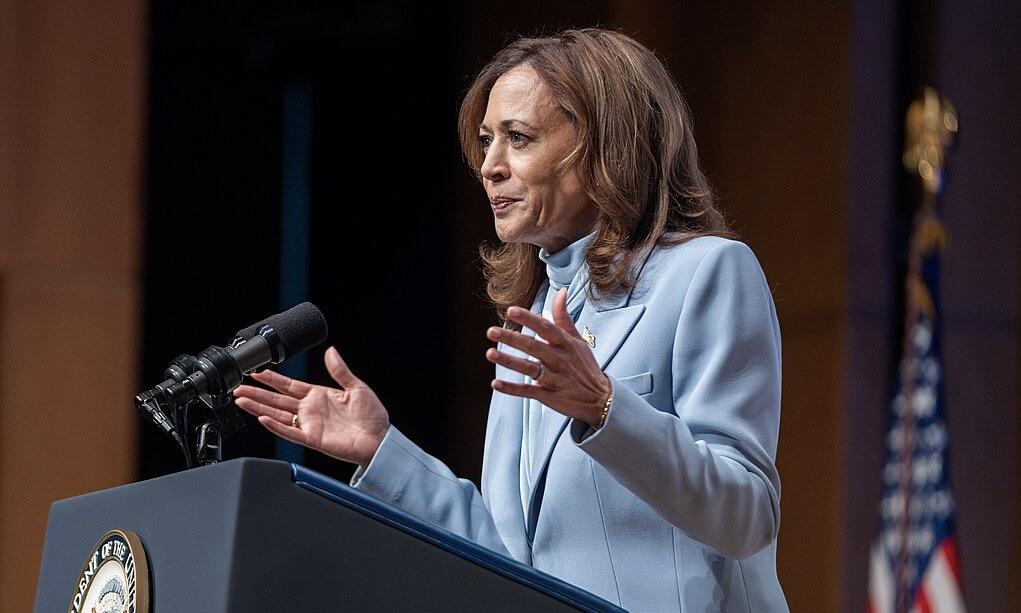As the 2024 election approaches, Vice President Kamala Harris is facing a concerning trend—Black women, a crucial voting bloc for Democrats, are showing decreasing support for her and the party. A striking drop in voter margin signals trouble for the Democrats' stronghold on this demographic, which has long been a reliable base.
According to recent polling data, the margin of support from Black women for Democratic candidates has significantly decreased over the last few election cycles. In 2012, former President Barack Obama had a commanding lead of +93 points among Black women voters, a trend that continued in 2016 with Hillary Clinton receiving the same level of support. However, by 2020, the margin narrowed to +85 under Joe Biden’s candidacy. Now, in 2024, Kamala Harris sees that margin slip even further to +71, a sharp decline that has left political analysts and Democrats alike alarmed.
For a party that relies heavily on the turnout of Black women voters, this decline presents a major challenge. The trend suggests that Harris is struggling to energize a demographic that has been essential to past Democratic victories. The reasons for this decline remain a subject of debate, but some analysts point to disappointment with the current administration's policies and a sense of disillusionment among younger Black women.
“This hasn’t been a great look for Kamala,” one political analyst noted. “She’s expected to carry the torch, but a drop of 22 points since Obama indicates she’s facing a real disconnect with voters.”
Critics argue that Harris’s inability to maintain strong support from Black women may stem from unmet expectations. Many hoped her historic position as the first Black female vice president would lead to significant progress on key issues such as criminal justice reform, economic inequality, and healthcare access—issues that disproportionately impact Black communities. However, progress on these fronts has been slow, leaving some voters feeling disenchanted.
“If we’re not seeing the results we need, what’s the point of voting?” one voter shared. “We supported Obama, we supported Clinton, we supported Biden, but it feels like our issues still aren’t being heard.”
While Harris and the Democratic Party have acknowledged the importance of re-energizing their base, particularly Black women, the declining support threatens to weaken their hold on one of their most reliable voting blocs.
Political observers warn that this erosion of support could have significant consequences in key battleground states. In close races, even a slight drop in turnout from a critical demographic could swing the results in favor of Republicans.
As Harris prepares for the final stretch of her campaign, her ability to regain trust and mobilize Black women voters will be pivotal in determining her success. The vice president has made outreach efforts a priority, focusing on listening tours, town halls, and targeted policy proposals aimed at addressing the concerns of Black women.
With the 2024 election rapidly approaching, Harris must work swiftly to reverse the trend if she hopes to solidify her position and lead the Democrats to victory. However, as the numbers stand, she faces an uphill battle in reestablishing the robust support her predecessors enjoyed.



 Macron Urges Emergency UN Security Council Meeting as US-Israel Strikes on Iran Escalate Middle East Tensions
Macron Urges Emergency UN Security Council Meeting as US-Israel Strikes on Iran Escalate Middle East Tensions  Israel Launches Fresh Strikes on Iran After Death of Supreme Leader Ayatollah Khamenei
Israel Launches Fresh Strikes on Iran After Death of Supreme Leader Ayatollah Khamenei  Suspected Drone Strike Hits RAF Akrotiri Base in Cyprus, Causing Limited Damage
Suspected Drone Strike Hits RAF Akrotiri Base in Cyprus, Causing Limited Damage  HHS Adds New Members to Vaccine Advisory Panel Amid Legal and Market Uncertainty
HHS Adds New Members to Vaccine Advisory Panel Amid Legal and Market Uncertainty  EU Urges Maximum Restraint in Iran Conflict Amid Fears of Regional Escalation and Oil Supply Disruption
EU Urges Maximum Restraint in Iran Conflict Amid Fears of Regional Escalation and Oil Supply Disruption  Israel Strikes Hezbollah Targets in Lebanon After Missile and Drone Attacks
Israel Strikes Hezbollah Targets in Lebanon After Missile and Drone Attacks  UK Accepts U.S. Request to Use British Bases for Defensive Strikes on Iranian Missiles
UK Accepts U.S. Request to Use British Bases for Defensive Strikes on Iranian Missiles  Marco Rubio to Brief Congress After U.S.-Israeli Strikes on Iran
Marco Rubio to Brief Congress After U.S.-Israeli Strikes on Iran  Zelenskiy Urges Change in Iran After U.S. and Israeli Strikes, Cites Drone Support for Russia
Zelenskiy Urges Change in Iran After U.S. and Israeli Strikes, Cites Drone Support for Russia  Trump Says U.S. Combat Operations in Iran Will Continue Until Objectives Are Met
Trump Says U.S. Combat Operations in Iran Will Continue Until Objectives Are Met  Iran Supreme Leader Ayatollah Ali Khamenei Killed in Israeli, U.S. Strikes: Reuters
Iran Supreme Leader Ayatollah Ali Khamenei Killed in Israeli, U.S. Strikes: Reuters  Middle East Conflict Escalates After Khamenei’s Death as U.S., Israel and Iran Exchange Strikes
Middle East Conflict Escalates After Khamenei’s Death as U.S., Israel and Iran Exchange Strikes  Australia Rules Out Military Involvement in Iran Conflict as Middle East Tensions Escalate
Australia Rules Out Military Involvement in Iran Conflict as Middle East Tensions Escalate  Trump Warns Iran as Gulf Conflict Disrupts Oil Markets and Global Trade
Trump Warns Iran as Gulf Conflict Disrupts Oil Markets and Global Trade  U.S.-Israel Strike on Iran Escalates Middle East Conflict, Trump Claims Khamenei Killed
U.S.-Israel Strike on Iran Escalates Middle East Conflict, Trump Claims Khamenei Killed  AI is already creeping into election campaigns. NZ’s rules aren’t ready
AI is already creeping into election campaigns. NZ’s rules aren’t ready  U.S. Deploys Tomahawks, B-2 Bombers, F-35 Jets and AI Tools in Operation Epic Fury Against Iran
U.S. Deploys Tomahawks, B-2 Bombers, F-35 Jets and AI Tools in Operation Epic Fury Against Iran 































